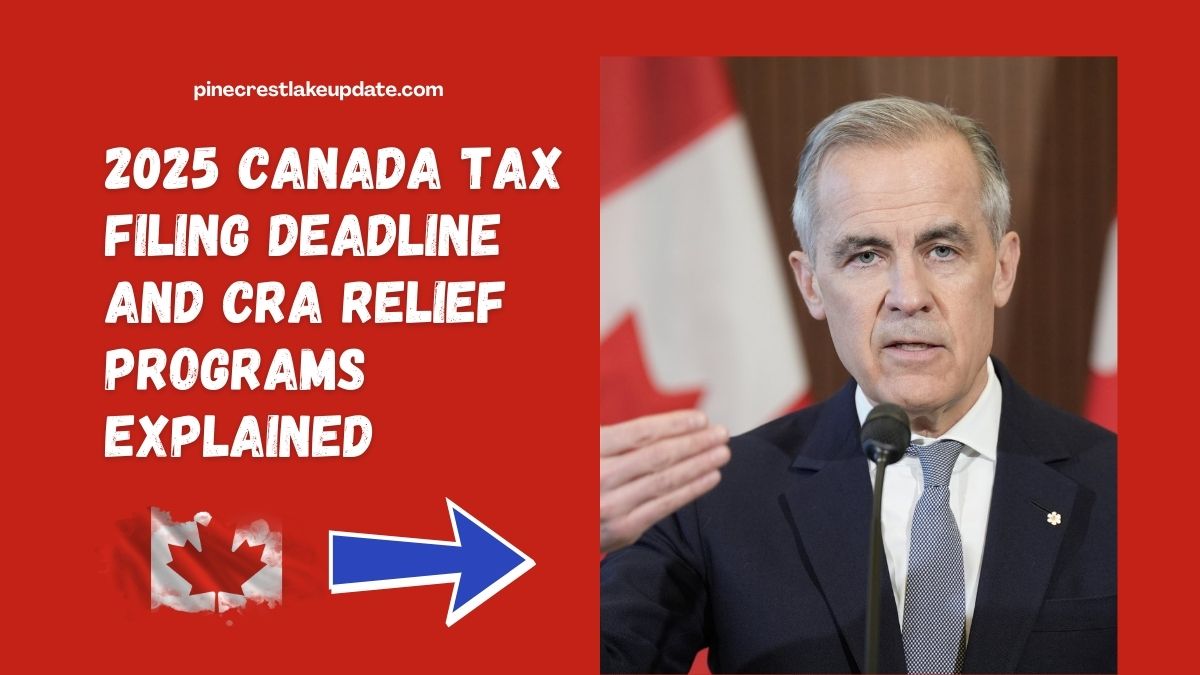As the 2025 tax season draws to a close, Canadians are quickly approaching the deadline to file their 2024 income tax returns. The Canada Revenue Agency (CRA) is urging taxpayers to act promptly to avoid severe penalties, interest charges, and interruptions to essential government benefits.
This guide provides everything you need to know about the 2025 tax filing deadline, relief options from the CRA, and strategies to ensure you avoid costly mistakes.
Why Meeting the 2025 Tax Deadline is Crucial
As of mid-April 2025, approximately 16.8 million Canadians have already filed their tax returns—only about half of the 33.5 million returns filed in the previous year.
The CRA is raising alarms about the importance of meeting the April 30, 2025 deadline, especially for individuals who owe taxes.
Failure to file by this deadline can result in significant financial consequences, including penalties and delays in receiving essential CRA benefits like the Canada Child Benefit, GST/HST Credit, and Canada Carbon Rebate.
Important Tax Filing Deadlines for 2025
General Deadline for Most Canadians
- Filing Deadline: April 30, 2025
- Payment Due: April 30, 2025
Deadline for Self-Employed Canadians
- Filing Deadline: June 16, 2025
- Payment Due: April 30, 2025
Make sure to mark these dates to avoid unnecessary penalties.
Penalties for Missing the Tax Deadline
The CRA imposes significant penalties for late filing, particularly if taxes are owed. Here’s a breakdown of the penalties and interest charges:
Late-Filing Penalties
- First-Time Offenders: A penalty of 5% of the unpaid balance as of April 30, 2025, plus 1% per month for up to 12 months.
- Repeat Offenders: If you have faced penalties in previous years (2021-2023), you could face a 10% penalty of the unpaid balance, with an additional 2% per month for up to 20 months.
Interest Charges
Starting May 1, 2025, the CRA will apply a compound daily interest rate of 8% (subject to change) on unpaid taxes, penalties, and reassessed amounts. Even small unpaid balances can quickly accumulate due to interest charges.
Impact on Government Benefits
Late filing may cause disruptions in critical government benefits, including:
- Canada Carbon Rebate
- Canada Child Benefit
- GST/HST Credit
- Old Age Security (OAS)
- Canada Workers Benefit
Filing your return on time ensures that these payments are processed without delay.
CRA Relief Options for 2025
If you’re struggling to file or pay on time, the CRA offers several relief measures:
File Early, Pay Later
You can submit your tax return by April 30, 2025, even if you can’t pay the full amount. This will help you avoid late-filing penalties while giving you more time to arrange payment.
Request Penalty Relief
If unforeseen circumstances (such as illness or natural disasters) prevent timely filing, you may be eligible for relief through the CRA’s Taxpayer Relief Program. Contact the CRA for assistance with penalty relief requests.
Set Up Payment Arrangements
If you owe taxes, the CRA allows taxpayers to set up payment plans to spread out the amount owed over time.
Special Considerations for Self-Employed Canadians
Self-employed individuals have a later filing deadline of June 16, 2025. However, taxes owed must still be paid by April 30, 2025 to avoid penalties and interest charges.
Top Tips for Filing Your Taxes on Time
- Start Early: Gather documents such as T4s and receipts ahead of time to prevent last-minute stress.
- Use Online Tools: Use NETFILE or certified tax software to file electronically for quicker processing.
- Consult a Professional: If your tax situation is complex, seek help from a tax professional to ensure accuracy.
- Check Eligibility for Credits: Take advantage of credits such as Home Office Expenses and Childcare Expenses to reduce your tax liability.
- Set Reminders: Add April 30, 2025 (or June 16, 2025 for self-employed) to your calendar to stay on track.
Key Dates for the 2025 Tax Season
| Key Information | Details |
|---|---|
| Filing Deadline | April 30, 2025 (June 16, 2025 for self-employed) |
| Payment Due | April 30, 2025 (for all taxpayers) |
| First-Time Late-Filing Penalty | 5% of owed amount + 1% per month (up to 12 months) |
| Repeat Offender Penalty | 10% of owed amount + 2% per month (up to 20 months) |
| Interest Rate | 8% (Q2 2025, subject to change) |
| Relief Options | File early, request penalty relief, or arrange payment plans with CRA |
The 2025 tax season is a crucial period for Canadian taxpayers. Filing your 2024 tax return by April 30, 2025 (or June 16, 2025 for the self-employed) is essential to avoid costly penalties, interest, and disruption to government benefits.
If you’re struggling to file on time, take advantage of CRA’s relief options such as penalty waivers and payment arrangements. Start your preparations today to ensure financial peace of mind and avoid the stress of last-minute filings.
FAQs
What are the penalties for missing the April 30 tax deadline in Canada?
If you miss the deadline and owe taxes, you could face a 5% penalty plus 1% per month for the first-time offenders. Repeat offenders may face 10% plus 2% per month.
Can I file my taxes after April 30 and still avoid penalties?
Yes, you can file after April 30, but you will still need to pay any taxes owed by April 30, or you will incur penalties and interest.
How can I avoid late filing penalties?
To avoid penalties, file your tax return by April 30, 2025 and ensure any taxes owed are paid on time. If you’re self-employed, file by June 16, 2025 but make sure your taxes are paid by April 30.
